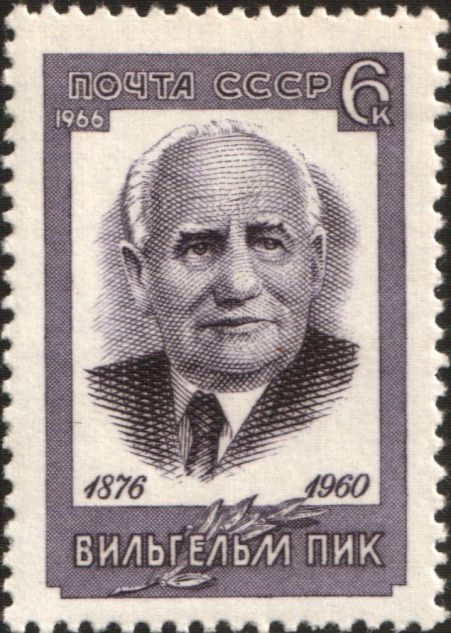On 3 August, British authorities barred representatives of the Socialist Unity Party of Germany (SED), Otto Grotewohl and Wilhelm Pieck, from entering the British Zone of Occupation, after Reuters reported on their speeches at local Communist Party rallies.
In April 1945, it was decided at the zonal congresses of the Social Democratic Party of Germany (SPD) and the Communist Party of Germany (DKP) in the Soviet Zone of Occupation that they would merge to form the Socialist Unity Party of Germany, the SED.
On 21 April, the party held its founding congress, where it adopted a policy document called "Principles and Objectives of the Socialist Unity Party of Germany", in which it outlined its immediate goals: the eradication of the remnants of fascism and militarism and punishment of war criminals, elimination of the post-war ruin, comprehensive democratisation of public life, abolition of capitalist monopolies, and nationalisation of the basic means of production, as well as the struggle for a united, democratic Germany. The new party was co-chaired by the communist Wilhelm Pieck and the socialist Otto Grotewohl.
The relationship between the socialists and communists in Germany was dramatic. During the rise of Nazism, the Communist Party refused to cooperate with the Socialists, declaring them "social traitors". Had this not happened, Hitler would in all likelihood have found it much more difficult to take power in 1933.
The SED won almost 50 percent of the vote in the eastern zone with the support of the Soviet occupation authorities. By 1948, the active Bolshevisation of the party would begin. Unwilling to accept the spread of communist ideas in Germany, the British and US authorities began to actively oppose communist agitation and propaganda. The SED would gain full power in the Soviet Zone, retaining several formally independent parties in the new German state, the GDR.
Source:
Klaus Schroeder, “Der SED-Staat. Geschichte und Strukturen der DDR”. München: Bayerische Landeszentrale für politische Bildung, 2013.
























